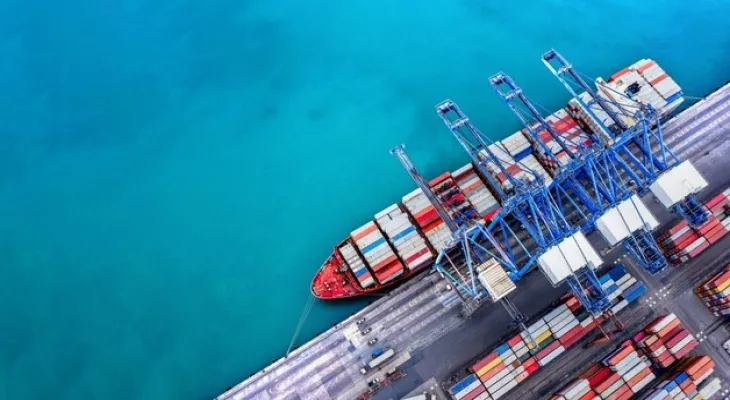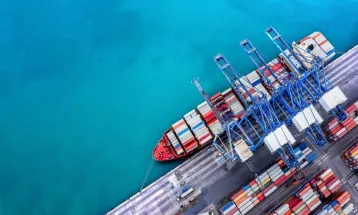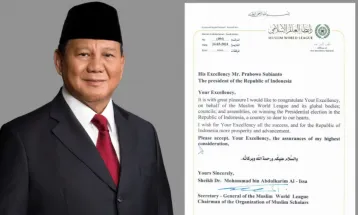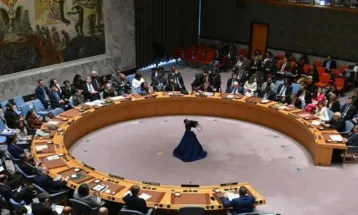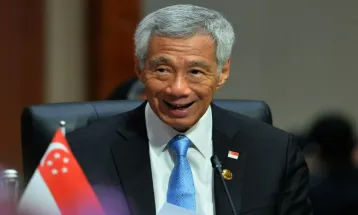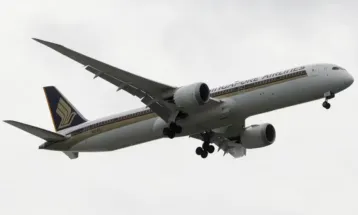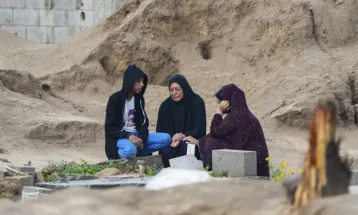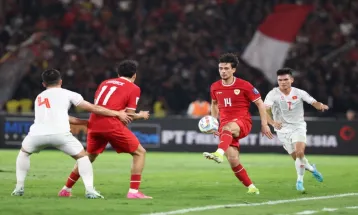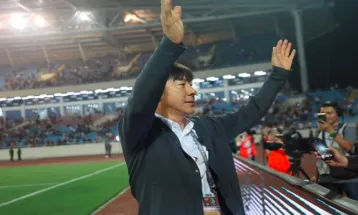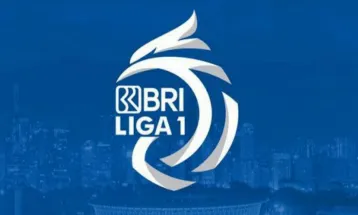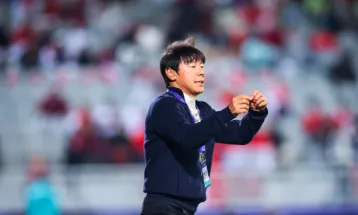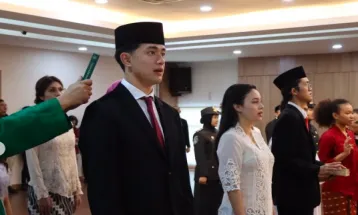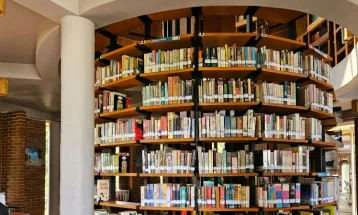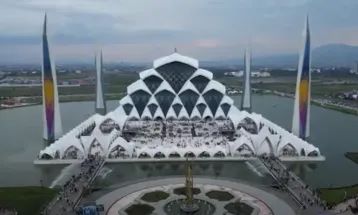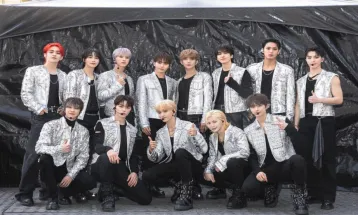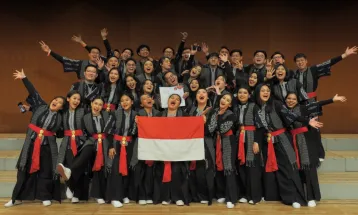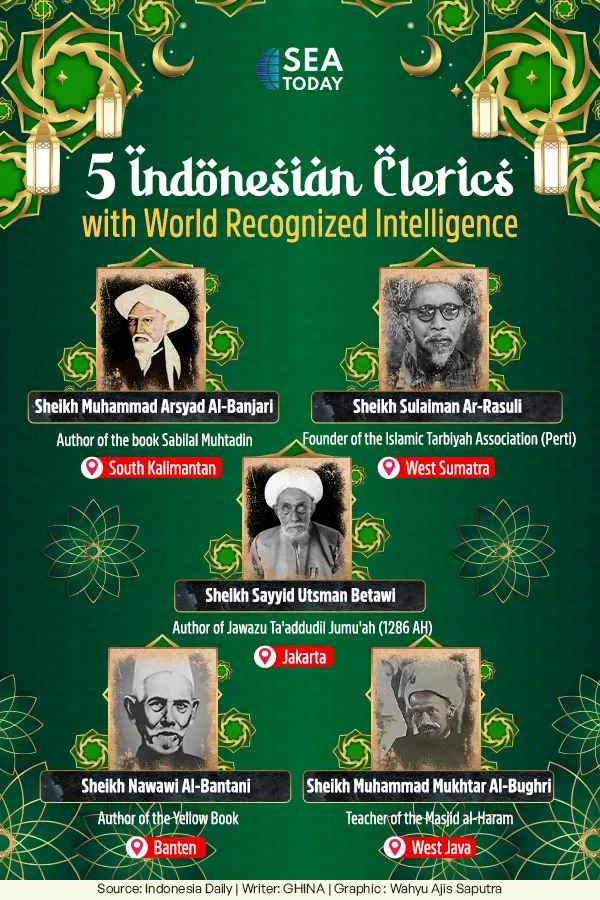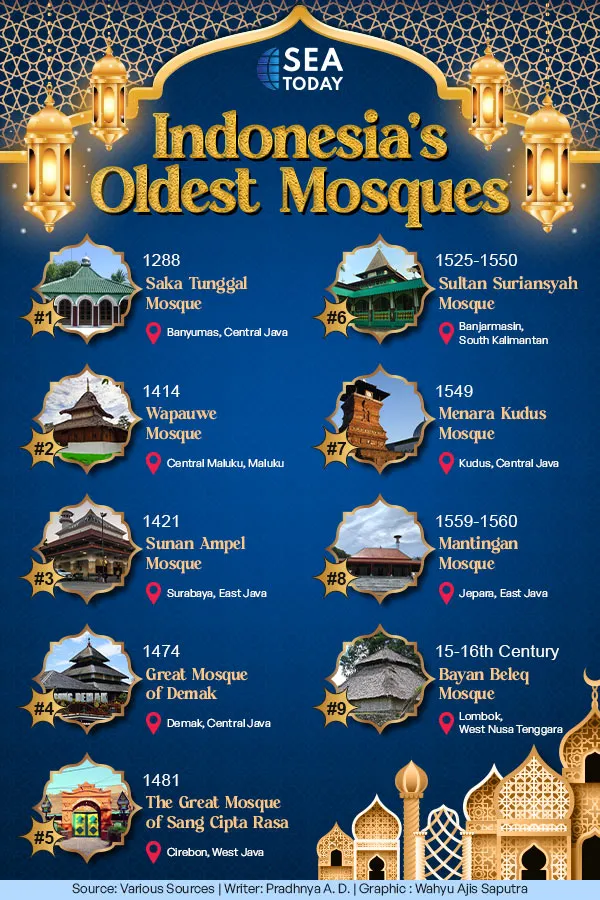UK Approves Deportation Bill of Asylum Seekers to Rwanda
UK Approves Deportation Bill of Asylum Seekers to Rwanda
SEAToday.com, Moscow-The UK Parliament officially approved a bill on Monday (4/22) that will provide the legal basis for the British govern...
Over 200 Bodies Found in Khan Younis Mass Grave After Israeli Mil...
Over 200 Bodies Found in Khan Younis Mass Grave After Israeli Mil...
SEAToday.com, Khan Younis - Palestinian civil defense on Saturday (4/20) uncovered a mass grave at the Nasser Hospital in Khan Younis, southern Gaza, with at least 210 bodies. The civil defense c...
North Korea Celebrates Leader Kim Jong-un With “Friendly Father”...
North Korea Celebrates Leader Kim Jong-un With “Friendly Father”...
SEAToday.com, Pyongyang-Recently, North Korea released a single full of praises for their leader Kim Jong-un. The song, titl...
World Muslim League Congratulates Prabowo Subianto's Presidential...
World Muslim League Congratulates Prabowo Subianto's Presidential...
SEAToday.com, Jakarta-The World Muslim League has congratulated Prabowo Subianto on his victory in Indonesia's 2024 Presidential Election. The congratulatory message was d...
UN Security Council Votes on Palestinian Full Membership Bid
UN Security Council Votes on Palestinian Full Membership Bid
SEAToday.com, New York-The United Nations Security Council (UNSC) will convene on Thursday (4/18) local time to vote on Palestine's application for full membership in t...
Singapore Prime Minister Lee Hsien Loong to Step Down in May
Singapore Prime Minister Lee Hsien Loong to Step Down in May
SEAToday.com, Singapore-Singapore Prime Minister Lee Hsieng Loong announced he will step down on May 15, 2024 after two decades. This state...
Singapore Airlines to Stop Using Iranian Airspace due to Iran-Isr...
Singapore Airlines to Stop Using Iranian Airspace due to Iran-Isr...
SEAToday.com, Singapore-Starting Sunday, April 14, Singapore Airlines (SIA) has stopped using Iranian airspace. In response to inquiries from Channel NewsAsia (CNA), Singa...
Breaking News: Iran Launches Ballistic Missiles and Drones Toward...
Breaking News: Iran Launches Ballistic Missiles and Drones Toward...
SEAToday.com, Jerussalem-On early Sunday (4/14), booms and air raid sirens sounded across Israel, after Iran launched hundreds of drones, ballistic missiles and cruis...
Israeli Airstrike Kills Hamas’ Top Leader’s Sons, Grandchildren
Israeli Airstrike Kills Hamas’ Top Leader’s Sons, Grandchildren
An Israeli aircraft killed three sons of Hamas’ top political leader Ismail Haniyeh in the Gaza Strip, Wednesday (4/10), amid ceasefire negotiations with the group. Hamas said, fo...
"Historic" Heatwave Hits Southeast Asia
"Historic" Heatwave Hits Southeast Asia
SEAToday.com, Jakarta - A “historic heatwave” is being experienced across southeast Asia, according to climatologist and weather historian Maximiliano...






